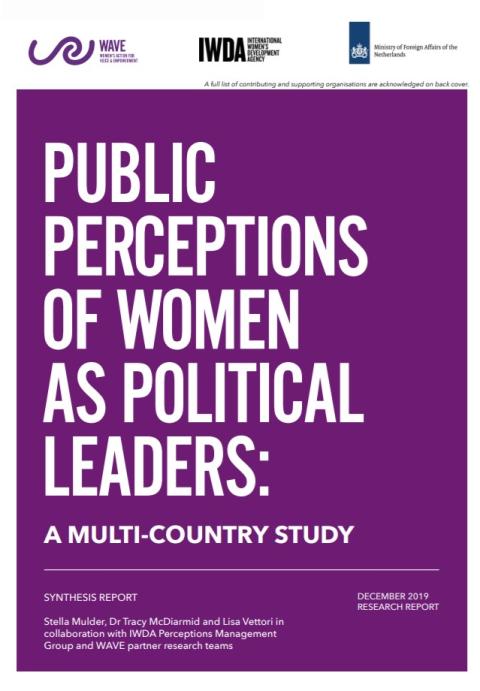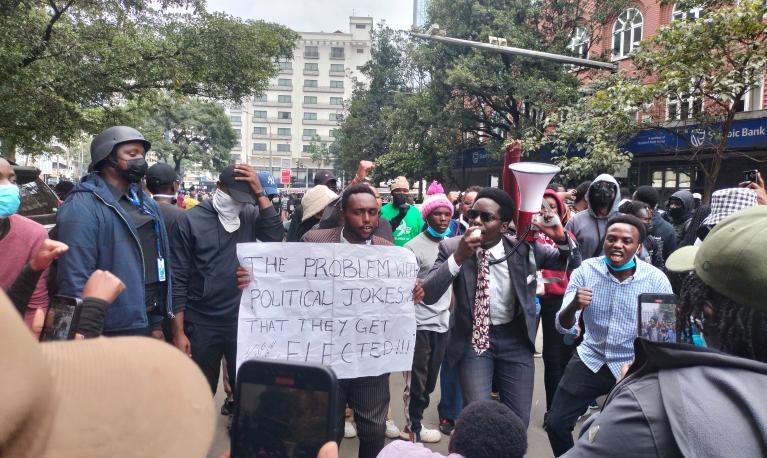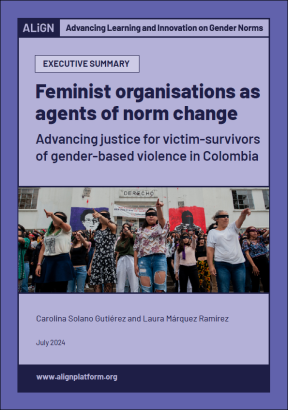- Report
- 1 Diciembre 2019
Public perceptions of women as political leaders: A multi-country study
- Author: Stella Mulder, Dr Tracy McDiarmid, Lisa Vettori
- Published by: International Women's Development Agency

Research in recent decades has revealed both formal and informal barriers to women’s participation in political leadership. Formal barriers include discriminatory electoral laws, political party practices that favour men and important differences between women and men in relation to access to resources. Informal barriers include social beliefs and attitudes – about leadership in general and about women as leaders – which are less visible but extremely influential.
There is a growing body of evidence that some of the deeper challenges to women’s equal participation in political leadership – enshrined in international agreements yet conspicuously absent – relate to this informal sphere. The evidence suggests that public perceptions relating to political leadership, and to women as potential leaders, have a profound influence on women’s electoral success.
This report discusses research into public perceptions of women as leaders in Cambodia, Timor-Leste and Solomon Islands. The research was conducted by women’s rights organisations in these countries through the Women’s Action for Voice and Empowerment (WAVE) program delivered by International Women’s Development Agency (IWDA) in Asia and the Pacific and funded by the Government of the Netherlands. The research builds on a similar study conducted in Fiji in 2014.
- Countries / Regions:
- South-East Asia, Cambodia, Timor-Leste, Solomon Islands
Related resources
Blog
14 Octubre 2024

Report
30 Septiembre 2024

Report
4 Septiembre 2024
